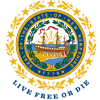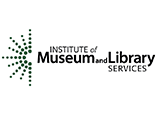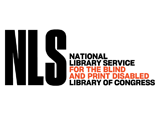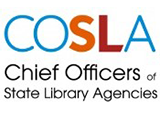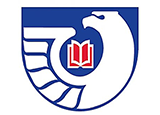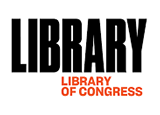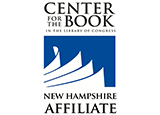Special & Archival Collections
The New Hampshire State Library collects, organizes, preserves and makes accessible rare books, unpublished manuscripts, letters, ledgers, maps, and other records from New Hampshire individuals and organizations in order to serve as a cultural resource for the state.
Using Archival Collections
Material in Archives/Special Collections is often unique and rare, and does not circulate. Material is available for use in the library under the supervision of staff. If you would like to make an appointment to use the archives/special collections, or have questions about the collections, please contact: NH State Library Reference Desk at (603- 271-2144). If you come to the library without an appointment, but would like to use Special Collections/Archives material, go to the Reference Desk for assistance. Much of the material comprising the Special Collections and Archives is not yet online, but is available for library use in consultation with staff. Finding aids for specific collections are listed below and are available online (click on the title to be connected to the finding aid).
Political Library Collection
The Library and Archives of New Hampshire's Political Tradition (NH Political Library) was founded in 1997 through the efforts of former NH Governor Hugh Gregg. Between 1997 and 2010, the library operated out of the Pierce Manse property as well as the New Hampshire State Library in Concord, NH. The library's collections continue to be housed at the New Hampshire State Library, and contain memorabilia, books, photographs, and archival documents related to the long history of New Hampshire's First-in-the-Nation primary.
Copyright and Terms of Use
The NH State Library permits the reproduction of physical materials from its collections on a case-by-case basis, depending on the condition of the items.
The user assumes all responsibility for questions of copyright that may arise.
Photo and duplication orders, as well as requests for permission to reproduce materials for publication should be made to the Administrator of Library Operations.
Questions or request permission to use content from one of the Archive's collections:

Congregational Unitarian Society – Andover, NH
This collection consists of the records from the Congregational Unitarian Society of Andover, New Hampshire. The collection was received as one large cloth and leather bound ledger and 2 3-ring binders full of papers. The content of the binders is business in nature and consists of a mixture of letters, meeting minutes, the Unitarian year book, budget information, fundraising, conference materials and attendance lists and statistics. The content of the ledger is primarily the annual meeting information and minutes, with some special and unofficial meeting information. There is information about the administration and budget of Proctor Academy. There are lists of names at the end of the ledger regarding; Ladies Industrial Society, Ministers of the church, Alliance presidents and Sunday School Superintendents. There is also a history of the Congregational Unitarian Society of Andover, NH written in 1925 at the back of the ledger.
Dudley Leavitt (1772-1851) Manuscripts, Notes, and Books
The Dudley Leavitt collection includes books, manuscripts, notes, and correspondence. The notebooks and manuscripts contain mathematical and astronomical calculations, as well as expositions of grammatical principles, all with examples and problems, apparently intended for use by his students. There are also newspaper clippings of current events and politics.
Governor Robert O. Blood Papers
The collection contains Governor Blood’s official papers from his terms in office, his political campaigns, and his on-going participation in the political and governmental activities of New Hampshire. Included are speeches, proclamations, official messages and statements, correspondence, and projects, as well as photographs, and 19 scrapbooks of newspaper clippings from 1940-1945.
Herbert Ogden Waters (1903-1996) Papers, Studio Items, and Print Collection
The collection consists of block prints, photographs, correspondence, financial records, publicity, notes and writings, publications, studio items, and inventories of works by Herbert Ogden Waters (1903-1996), a New Hampshire artist who created wood and linoleum block prints, and watercolor paintings from the 1930's through the 1990's. He was an artist in the Federal Art Project of the Works Progress Administration (WPA) in the 1930s and 1940s.
Jacob White Papers
The collection comprises materials relating to Rev. Jacob White's ministry in the Congregational Church of Lyndeborough, New Hampshire from 1836-1840. Contents consist of correspondence to and from White, his sermons and notes, verses of hymns probably written by him, and papers of the church, including a Bill of Mortality which lists the names and date of deaths of members of the church, as well as a church covenant, probably written by White.
Mead Family Genealogy, compiled by Harry Bert Underhill and Theda Page Brigham
This collection is a genealogy of the Mead family and focuses on the 6th (1775) through 12th (1899- ) generations in the United States of America, beginning with Nathan Mead. In the second series, there is a brief introduction on the Mead family history from 1180 A.D. through to 1897 A.D. The collection includes manuscript and typed documents about family members, drawings of maps, and newspaper articles. This collection was created by Harry Bert Underhill and Theda Page Brigham.
Nathaniel C. Burwash (1906-2000): NHSL W.P.A. collection
The collection consists of 126 watercolors and 18 pencil drawings done in the 1930's and early 1940's by WPA artist Nathaniel C. Burwash (1906-2000), who was part of the New Deal Federal Artists Project in New Hampshire from 1931-1941. Also included are appraisal and accession information, background on the NH Artists Archives, and exhibit photos and captions.
New Hampshire Agricultural Census Data: 1788, 1803, 1808, 1812, & 1820
Collection consists of handwritten registers of primarily agricultural data collected from various counties in New Hampshire at several intervals from 1788 to 1820. The data are given according to county and then by town. Information is provided on acreage, stock, mills, buildings, and population.
New Hampshire Association of Military Chaplains: Papers
This collection consists of biographies and correspondence created or compiled by the New Hampshire Association of Military Chaplains in the late 19th and early 20th centuries about members of the clergy who served as chaplains to New Hampshire regiments, primarily in the Civil War. Important as documentation of the formation and function of the NH Association of Military Chaplains, the collection also provides information for researchers and genealogists on the chaplains themselves. Also included is the constitution of the NH Association Military Chaplains.
New Hampshire Branch and Concord City Union of the International Order of the King’s Daughters and Sons: Records and Scrapbooks 1898-1993
The Records and Scrapbooks collection contains the reprinted writings of Margaret Bottome (founder of the International Order of the King's Daughters and Sons), the records of the New Hampshire Branch, and the records of the Concord (NH) City Union of the King’s Daughters and Sons. Included are scrapbooks, records of meetings and conventions, and treasurer’s ledgers. The collection also contains the Silver Cross magazine, the official publication of the order, from 1907-1976.
New Hampshire Commemorative Coin Committee Papers
The collection covers the entire process by which the NH Commemorative Quarter was designed, selected, and minted, from 1998-2000. Included are the artists' submissions of artwork for consideration by the Governor's Coin Committee, copyright releases, final selections, correspondence, and materials related to the media launch of the selected design, the Old Man of the Mountain.
New Hampshire Federation of Garden Clubs: Papers of the Organization 1930s-1970s
The collection contains the records of the New Hampshire Federation of Garden Clubs from the mid-1930s through the early 1970s, including scrapbooks, ledgers, reports, publications, plant inventories, and information on special events.
New Hampshire Photographs from the Mid-20th Century, taken for the NH Planning and Development Commission
The collection consists of 2,065 black and white photographs, approx. 3 x 5", taken by several photographers for the New Hampshire Planning and Development Commission in the mid-20th century. A few of the photographs have captions hand-penciled on the back. Others are attached to cards which provide identification information. Most of the photographs have only the photographer's identification code, for which no key is extant.
The subject matter includes areas of interest to New Hampshire visitors, e.g. winter sports, summer camps, the White Mountains, historic towns and buildings, fairs, autumn scenery, the seacoast, Lake Winnipesaukee, etc.
The photographs of Eric Sanford dominate the collection but the work of studios and other photographers, notably Harold Orne, is also represented.
Noah Cooke Papers
The collection includes materials relating to Noah Cooke's work as a lawyer in Keene, New Hampshire, as well as his tenure as town clerk of Keene (1795-1804). The contents consist of court documents from cases dating from 1782-1821. These include, but are not limited to, copies of pleas, arguments, reports, and judgments. There is also Cooke's copy book of legal forms.
Notes on Squam Lake and Environs
This small collection consists of manuscript notes in pencil, primarily about Squam Lake in Holderness, New Hampshire. Mentioned are early map references to the lake, and discussion of the origin of its name. There is also the text of an article on the discovery of the skeleton of "Yagesho" or "naked bear" of Algonkian legend in the North Conway, NH area. The notes may have been compiled for the purpose of writing a history of the region. Two pages are accounting ledgers; one of these has a partial romance story written on the back.
Papers of the Thornton Center Freewill Baptist Church – Thornton, NH
The Thornton Center Freewill Baptist Church collection provides information on administrative matters, the Ladies Aid Society, and the Sabbath School. Administrative information includes member grievances, church dismissals and member "trials" for inappropriate behavior. There is also a history recorded in one ledger that covers pastor information and the covenants. The Ladies Aid Society contents include meeting information, member lists, fundraising events, and details about the programs and money gathered. The ledger on the Sabbath School contains information related to attendance to the school, the elected administrators, donations/collection gathered at the school, and regular meeting information.
Pollard Genealogical Papers, compiled and edited by Maurice J. Pollard
The collection consists of documents pertaining primarily to the research conducted by Maurice J. Pollard into some extramarital affairs in his genealogy, namely his New Hampshire ancestors in the Moses and Emery families in the 18th and 19th centuries. The collection contains his typed "deposition" in which he describes his research and provides evidence for the ancestral irregularities. He also provides genealogical tables with the names of his notorious ancestors written in red. Four addenda provide biographical details.
Photographs of several family members are provided, as well as pictures of the family's homestead in Haverhill, Massachusetts.
Rockingham Guards Papers, 1825-1849
The Rockingham Guards collection contains business and financial records, military subscriptions, company and regimental orders, oaths of allegiance, permissions to enlist, permissions for discharge, excused-from-duty certificates signed by physicians, correspondence, and membership rolls.
Much of the business of the company, during these years between the War of 1812 and the Civil War, centered around entertainments, parades, and visiting with other companies in New Hampshire and Massachusetts. The receipts indicate numerous expenses for dinners, military balls, the trimming and repair of uniforms, hosting visits from other companies, turning out for parades, and hiring of musicians. The militia members themselves provided the funds for these expenses, as evidenced by the military subscriptions, signed by individual soldiers with the amount to be paid noted next to the name.
Unifying a Nation: Exhibit of World War Two Posters From the New Hampshire State Library, December 7, 2001 – February 2, 2002
As a federal depository library, the State Library of New Hampshire in Concord received World War II propaganda posters from 1941-1946. To commemorate the 60th anniversary of the December 7, 1941 attack on Pearl Harbor, the library mounted an exhibit of 61 of these posters, which ran from December 7, 2001 through February 2, 2002. The posters portray the United States government’s efforts to rally support at home for the war effort. The collection includes the 61 posters exhibited and all supporting documentation for the exhibit, including correspondence, financial information, photo-scans, media coverage, and bibliographical research.
Willard J. Templeton Civil War Letters: 1862-1864
The collection consists of some 140 letters sent to family members and friends by a soldier in the 11th Regiment New Hampshire Volunteer Infantry, Company D, during the Civil War. Stationed at various times in Kentucky, Maryland, Mississippi, Tennessee, Virginia, and Washington, D.C., the letters refer to several battles, including Fredericksburg, Vicksburg, Knoxville, Battles of the Wilderness, Spotsylvania, Cold Harbor, and Petersburg.
The letters offer a window into the daily experience of a young union soldier during the Civil War. Writing to his siblings, parents, and friends, he comments on geography (with a farmer's eye), the weather, Army food, military pay, disease, battles, the condition, equipment, and behavior of soldiers on each side, and slavery. He records observations of major cities such as Baltimore and Washington, and of the way of life of the southern states in which he is stationed. He makes frequent comparisons to New Hampshire weather, soil, manners and attitudes, and shows devoted interest in the lives and financial well-being of his loved ones.
William Plumer Sr. and Jr.: Correspondence and Papers
This collection contains the writings of two prominent New Hampshire politicians, Governor William Plumer and William Plumer Jr., from the late 18th through the mid-19th century, a time when the new nation was still forming and establishing its principles and character. The writings include correspondence, biographical and historical notes, essays and speeches, legal and financial papers, poetry, and a variety of journals, notes, and memoranda.
William Plumer and his son William Plumer Jr. corresponded voluminously not only with each other but with some of the key figures in the development of the United States, including presidents, cabinet members, Congressmen, newspaper editors, social reformers, governors, cartographers and scientists, judges, military veterans, professors, and clergymen. The letters are the largest and most valuable part of the collection, containing originals as well as drafts and copies of letters sent. The subjects written about, from the vantage point of two men who were often actively involved in the events they discuss, include the Federalist Party, Louisiana Purchase, the War of 1812, slavery, Indians, foreign relations, international trade and events, public debt, and the inner workings of Congress.
Also of interest are the biographical notes and sketches of key figures in US history and Plumer's notes on the history of the country. William Plumer Jr.'s agricultural journals throw light on the concerns of a farmer in the 19th century. The collection also contains the draft of his biography of his father.



